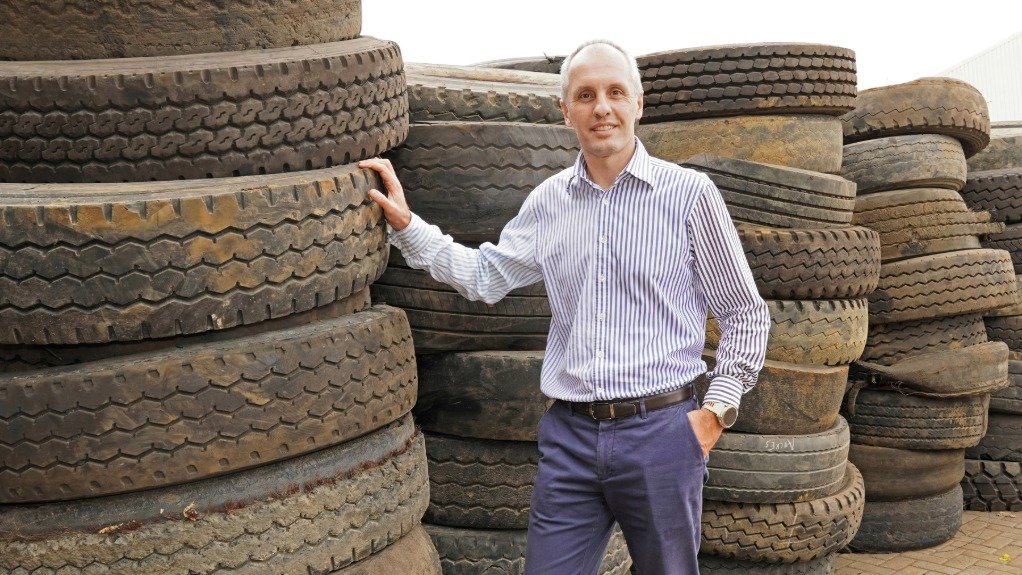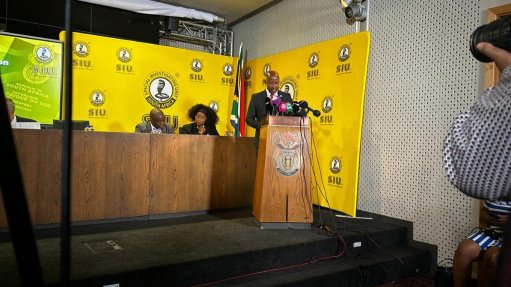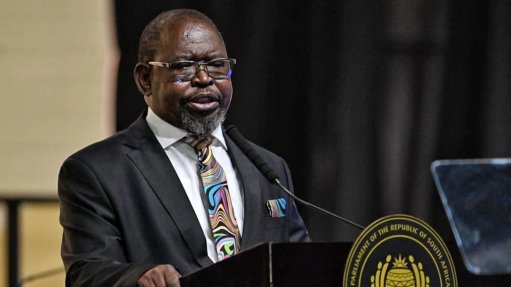Tyre recycler Mathe Group says devulcanisation can enhance circularity, product value
KwaZulu-Natal-based tyre recycling company Mathe Group says the introduction of an operational large-scale devulcanisation plant could open up new markets for recycled rubber in manufacturing and construction.
The group says in a statement issued on July 28 that such a plant could enhance the country’s fledgling circular economy, reduce dependency on virgin rubber imports and address the ever-increasing environmentally hazardous stockpile of difficult-to-process off-the-road tyres.
In South Africa, Mathe Group explains, the tyre recycling sector is largely focused on shredding, crumb production and energy recovery.
Mathe Group, which was grown from a small startup to having processed more than a million radial truck tyres, has been a trailblazer in the local rubber recycling sector and an active global advocate for innovative ways to break down tyres.
Mathe Group CEO and Tyre Recycling Industry Association of South Africa founder Dr Mehran Zarrebini says, following his visit to the European Tyre Recycling Association Conference in Europe, he wants the small local sector to explore new opportunities for tyre recycling despite the fact that government’s latest rendition of a tyre waste management plan remains in limbo.
Tyre recycling started in earnest in 2016 in South Africa, with more than 16 entities operating in this space. However, the sector has struggled to grow owing to lack of financial support from government, lack of clearly defined legislation and red tape that stifles incumbents from entering the industry.
Zarrebini says the European tyre recycling community has strong partnerships between academia, private businesses and government, which help to form useful regulation and policy without stifling innovation.
He mentions that devulcanisation was discussed at the conference as both a challenge and an opportunity in tyre recycling. During manufacturing, rubber is vulcanised by heating and adding chemicals that strengthen the polymer chains, improving the rubber’s mechanical properties and making it more resistant to heat, wear and chemicals. It also enhances elasticity and strength.
However, owing to vulcanised rubber by design being highly durable and chemically stable, it is particularly resistant to reprocessing, which Zarrebini says has long been a barrier to achieving full circularity of the product.
Recent global discussions and demonstrations on devulcanisation technologies and selective breakdown methods have shown advancements in microwave devulcanisation, chemical softening processes and cryogenic grinding coupled with devulcanisation agents, Zarrebini states.
He hopes that the tyre recycling sector in South Africa can mature to such an extent that it justifies the establishment of a sophisticated devulcanisation plant, as it would allow for more effective reuse of rubber in high-value products rather than relegating it to low-end fillers.
Mathe Group itself is in the process of upgrading and expanding its recycling plant in Hammarsdale.
Mathe Group currently recycles about 1 000 radial truck tyres a day to produce 45 t of rubber crumb. About 70% of each 55 kg tyre becomes rubber crumb and the balance is waste steel that is exported.
“The new technology on its way to Mathe focuses on primary processing of material and more advanced and efficient technology to process tyres. There is also plant that will ensure much of the steel that can be recovered will achieve lower than 3% rubber contamination that will command a much higher price on the international market,” Zarrebini concludes.
Article Enquiry
Email Article
Save Article
Feedback
To advertise email advertising@creamermedia.co.za or click here
Announcements
What's On
Subscribe to improve your user experience...
Option 1 (equivalent of R125 a month):
Receive a weekly copy of Creamer Media's Engineering News & Mining Weekly magazine
(print copy for those in South Africa and e-magazine for those outside of South Africa)
Receive daily email newsletters
Access to full search results
Access archive of magazine back copies
Access to Projects in Progress
Access to ONE Research Report of your choice in PDF format
Option 2 (equivalent of R375 a month):
All benefits from Option 1
PLUS
Access to Creamer Media's Research Channel Africa for ALL Research Reports, in PDF format, on various industrial and mining sectors
including Electricity; Water; Energy Transition; Hydrogen; Roads, Rail and Ports; Coal; Gold; Platinum; Battery Metals; etc.
Already a subscriber?
Forgotten your password?
Receive weekly copy of Creamer Media's Engineering News & Mining Weekly magazine (print copy for those in South Africa and e-magazine for those outside of South Africa)
➕
Recieve daily email newsletters
➕
Access to full search results
➕
Access archive of magazine back copies
➕
Access to Projects in Progress
➕
Access to ONE Research Report of your choice in PDF format
RESEARCH CHANNEL AFRICA
R4500 (equivalent of R375 a month)
SUBSCRIBEAll benefits from Option 1
➕
Access to Creamer Media's Research Channel Africa for ALL Research Reports on various industrial and mining sectors, in PDF format, including on:
Electricity
➕
Water
➕
Energy Transition
➕
Hydrogen
➕
Roads, Rail and Ports
➕
Coal
➕
Gold
➕
Platinum
➕
Battery Metals
➕
etc.
Receive all benefits from Option 1 or Option 2 delivered to numerous people at your company
➕
Multiple User names and Passwords for simultaneous log-ins
➕
Intranet integration access to all in your organisation





















